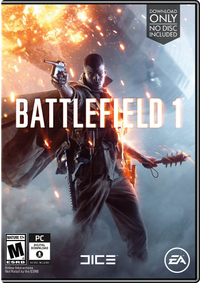Battlefield 1 Performance In DirectX 12: 29 Cards Tested
Scaling: CPU Core Count
Beyond comparing different host processing architectures, we wanted to measure the response of a similar architecture with different physical core configurations, similar to what we did in Part 1: DirectX 11 Gaming And Multi-Core CPU Scaling. The CPUs we tested in that piece are the same ones appearing in this one, and they’re all set to a static 3.9 GHz with Hyper-Threading disabled to again isolate core count as much as possible.





FHD is the resolution we’d expect to vary the most based on host processing. But the four-, six-, eight-, and 10-core designs all average within a frame and a half of each other. Only the two-core Core i3-6320 is completely hobbled, despite the GeForce GTX 1080 complementing it.
This is a sharp contrast to the Battlefield 4 numbers we recorded in our multi-core scaling story. That game called for a dual-core CPU at minimum, while Battlefield 1’s requirements start with a four-core (Intel) or six-core (AMD) processor. These results illustrate why the bar was raised. Despite employing the same Frostbite 3 engine, Battlefield 1 clearly utilizes available resources differently than its predecessor.





Because pressure from the graphics workload pushes frame rates down on our four higher-end setups, while the Core i3 continues to bottleneck performance down low, the delta between CPU- and GPU-bound scenarios narrows somewhat.
We notice one other emerging trend, though. At 1920x1080, the quad-core Skylake chip achieved about 93% of the six-core Broadwell-E-based platform’s minimum frame rate (even though their averages were nearly identical). The same thing happens at 2560x1440. Might the higher core count Broadwell-Es be more resilient to sudden bursts of intensity that cause performance dips on CPUs with fewer cores?





UHD shifts enough work to the GeForce GTX 1080 that differences between the four top CPUs almost completely evaporate. The Core i3 continues holding back performance, so it doesn’t even register the resolution change. Given this, it looks like a quick quad-core is plenty to keep up with Battlefield 1’s most demanding settings. Focus your budget on graphics horsepower once you’ve satisfied that requirement.
MORE: Best CPUs
Stay on the Cutting Edge
Join the experts who read Tom's Hardware for the inside track on enthusiast PC tech news — and have for over 25 years. We'll send breaking news and in-depth reviews of CPUs, GPUs, AI, maker hardware and more straight to your inbox.
MORE: Intel & AMD Processor Hierarchy
MORE: All CPU Content
Current page: Scaling: CPU Core Count
Prev Page RX 480 And GTX 1060: Mainstream Vs. High-End Next Page Conclusion-
envy14tpe Wow. The amount of work in putting this together. Thanks, from all the BF1 gamers out there. You knocked my socks off, and are pushing me to upgrade my GPU.Reply -
computerguy72 Nice article. Would have been interesting to see the 1080ti and the Ryzen 1800x mixed in there somewhere. I have a 7700k and a 980ti it would be good info to get some direction on where to take my hardware next. I'm sure other people might find that interesting too.Reply -
Achaios Good job, just remember that these "GPU showdowns" don't tell the whole story b/c cards are running at Stock, and there are GPU's that can get huge overclocks thus performing significantly better.Reply
Case in point: GTX 780TI
The 780TI featured here runs at stock which was 875 MHz Base Clock and 928 MHz Boost Clock, whereas the 3rd party GPU's produced ran at 1150 MHz and boosted up to 1250-1300 MHz. We are talking about 30-35% more performance here for this card which you ain't seeing here at all. -
xizel Great write up, just a shame you didnt use any i5 CPUS, i would of really liked to se how an i5 6600k competes with its 4 cores agains the HT i7sReply -
Verrin Wow, impressive results from AMD here. You can really see that Radeon FineWine™ tech in action.Reply -
And then you run in DX11 mode and it runs faster than DX12 across the board. Thanks for effort you put in this but rather pointless since DX12 has been nothing but pile of crap.Reply
-
NewbieGeek @XIZEL My i5 6600k @4.6ghz and rx 480 get 80-90 fps max settings on all 32 v 32 multiplayer maps with very few spikes either up or down.Reply -
Jupiter-18 Fascinating stuff! Love that you are still including the older models in your benchmarks, makes for great info for a budget gamer like myself! In fact, this may help me determine what goes in my budget build I'm working on right now, which I was going to have dual 290x (preferably 8gb if I can find them), but now might have something else.Reply
Most Popular





